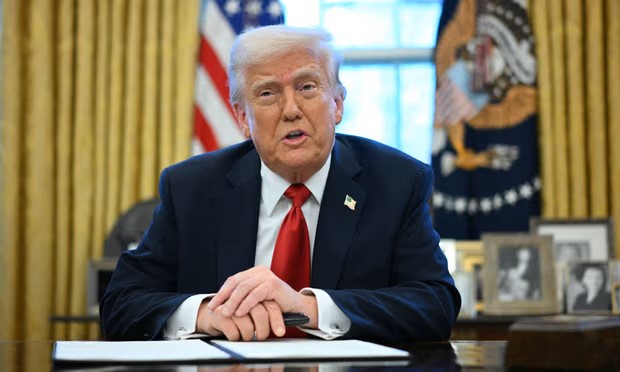The European Union (EU) finds itself at a crossroads in its trade relationship with the United States, following the imposition of new tariffs by the Trump administration. European Commission President Ursula von der Leyen has publicly expressed deep concern over the tariffs, characterizing them as a detrimental blow to global commerce and consumers. While emphasizing the EU’s commitment to open dialogue and negotiation, von der Leyen has also made it clear that the bloc is prepared to implement retaliatory measures should discussions with the U.S. fail to yield a satisfactory outcome. The EU’s response reflects a complex balancing act—seeking to protect its economic interests while also striving to maintain a constructive relationship with its transatlantic partner.
The tariffs imposed by the U.S. target a broad range of goods imported from the EU, including automobiles and pharmaceuticals. These sectors are now facing significantly increased costs, which are expected to ripple through the European economy and impact consumers. Von der Leyen has cautioned that the tariffs will likely lead to higher prices for everyday goods, such as groceries and medications, as well as increased transportation costs. This, in turn, could fuel inflation and disproportionately affect vulnerable populations within the EU. The situation underscores the interconnectedness of global trade and the potential for tariffs to trigger a chain reaction of economic consequences.
The EU’s response to the U.S. tariffs has been multifaceted. Von der Leyen has announced that the EU is actively finalizing its initial package of countermeasures, designed to offset the negative impact of the American tariffs. Concurrently, the EU is also developing additional protective measures for its businesses, should negotiations with the U.S. prove unsuccessful. This dual-track approach demonstrates the EU’s commitment to safeguarding its economic interests while remaining open to finding a mutually agreeable solution through diplomatic channels.
The EU’s strategy involves engaging directly with the sectors most affected by the tariffs. Von der Leyen has initiated talks with representatives from the automotive and pharmaceutical industries, recognizing the significant challenges they face. These discussions aim to assess the full impact of the tariffs and explore potential mitigation strategies. By collaborating with industry leaders, the EU seeks to develop targeted responses that effectively address the specific needs of these crucial sectors. This collaborative approach underscores the EU’s commitment to supporting its businesses and mitigating the negative consequences of the trade dispute.
Underlying the EU’s response is a message of resilience and determination. Von der Leyen has urged European citizens not to lose faith, emphasizing the EU’s capacity to weather this economic storm. This message of reassurance is crucial in maintaining public confidence and preventing widespread anxiety about the potential economic fallout. The EU’s leadership recognizes the importance of projecting strength and unity in the face of external challenges.
The current trade dispute between the EU and the U.S. highlights the delicate balance between international cooperation and the pursuit of national interests. While both sides have expressed a desire to maintain a positive relationship, the imposition of tariffs creates a significant obstacle to achieving this goal. The EU’s response, characterized by a combination of retaliatory measures and a willingness to negotiate, reflects the complexities of navigating global trade relations in an increasingly interconnected world. The outcome of this dispute will have far-reaching implications for the transatlantic partnership and the broader global trading system. As the EU and the U.S. chart their course forward, the world watches closely, hoping for a resolution that promotes stability and prosperity for all.


